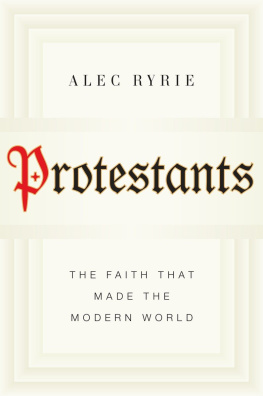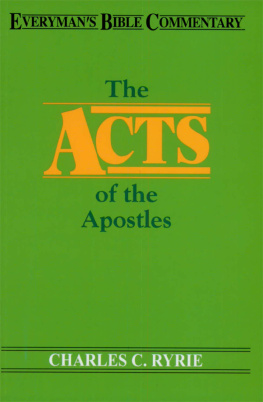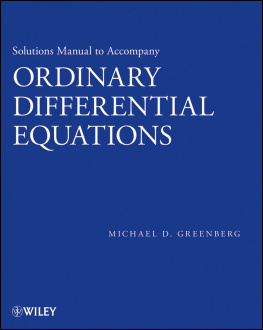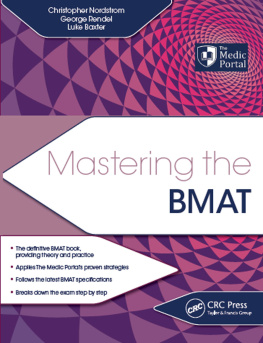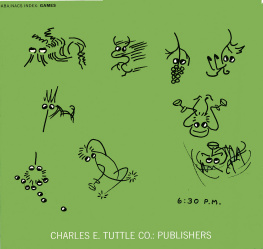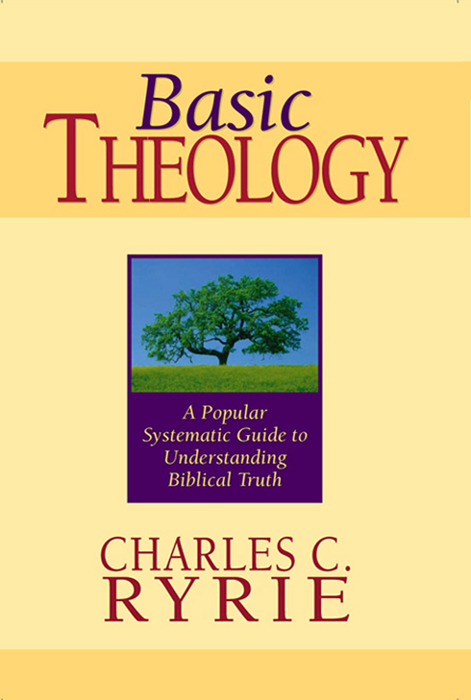All rights reserved. No part of this book may be reproduced in any form without permission in writing from the publisher, except in the case of brief quotations embodied in critical articles or reviews.
Scripture quotations marked KJV are taken from the King James Version.
The NIV and New International Version trademarks are registered in the United States Patent and Trademark Office by International Bible Society. Use of either trademark requires permission of International Bible Society.
We hope you enjoy this book from Moody Publishers. Our goal is to provide high-quality, thought-provoking books and products that connect truth to your real needs and challenges. For more information on other books and products written and produced from a biblical perspective, go to www.moodypublishers.com or write to:
CONTENTS
SECTION I
PROLEGOMENA
SECTION II
THE LIVING AND TRUE GOD
SECTION III
THE BIBLE: GOD-BREATHED
SECTION IV
ANGELS: MINISTERING SPIRITS
SECTION V
OUR ADVERSARY THE DEVIL
SECTION VI
DEMONS: UNCLEAN SPIRITS
SECTION VII
MAN: THE IMAGE OF GOD
SECTION VIII
SIN
SECTION IX
JESUS CHRIST OUR LORD
SECTION X
SO GREAT A SALVATION
SECTION XI
THE HOLY SPIRIT
SECTION XII
I WILL BUILD MY CHURCH
SECTION XIII
THINGS TO COME
SECTION XIV
CENTRAL PASSAGES
SECTION XV
DEFINITIONS
T heology is for everyone. Indeed, everyone needs to be a theologian. In reality, everyone is a theologianof one sort or another.
And therein lies the problem. There is nothing wrong with being an amateur theologian or a professional theologian, but there is everything wrong about being an ignorant or a sloppy theologian. Therefore, every Christian should read theology.
Theology simply means thinking about God and expressing those thoughts in some way. There will be a more precise definition in the first chapter, but in this basic sense everyone is a theologian. Even an atheist has a theology. He thinks about God, rejects His existence, and expresses that sometimes in creed and always in lifestyle. The follower of a non-Christian religion has substituted his counterfeit deity for the true God and shows off that theology in various ways.
But almost all the readers of this book will be theists if not also believers in Jesus Christ. So your thoughts, however scattered or systematized, are about the living God, the only true God who exists. Because this is so, there is all the more reason for you to study theology, for all the time and energy you give to thinking about the true God will not only expand your mind but affect your life.
As an example of how theology can affect your life, think about the subject of accountability. All of us have various levels of accountability. We are accountable to ourselves; conscience sees to that. But conscience can be warped, seared, or ignored, thus reducing accountability on that level. We have accountability to society, but different societies have different standards for legality and morality, and an individual can sometimes violate standards and escape accountability. Other units of accountability include family, local church, employment, etc. But believers in the true God recognize that they also have to be accountable to Him. Sometimes we can seem to escape present accountability to God, but no one will escape future accountability, for we will all stand before the judgment seat of Christ. The theology of judgment forces us to think about a facet of God that should be expressed in a sober outlook on life now.
Good theologians come in many shapes. Some are, by the worlds evaluation, ignorant; but nevertheless they do understand many truths about God. Others are studious but in a nontechnical way. Still others are highly skilled and widely read. Some are professional theologians; most are not.
This book is written for the most who are not. If I had been writing to professionals, I would have done a number of things differently. I would not have made a conscious effort to keep the language simple and the explanations uncomplicated, since the professional can understand complex language and technical explanations. I would not have used illustrations (though some technical books could well use them!). I would not have kept the footnotes to a minimum. Professionals want to be sure that an author has read everything on a subject (but who has?). At least they want to see proof of a wide range of reading by the quantity of a variety of footnotes, some of which must be very contemporary. I think I have demonstrated in other books that I can do this, but in this one I have chosen to keep footnotes to a minimum. I used them when it was necessary to document a statement the reader might think untrue or to make clear that I was not creating a straw man. But mostly I have used them to indicate books and articles I felt made a helpful contribution to the particular subject under discussion. In that way, it is possible for the reader to pursue a subject further if he desires to.
But if theology is thinking about God and expressing those thoughts, then judge this book on the basis of whether or not it reflects correct thoughts about God and expresses them accurately and plainly to you and in a manner that brings changes in your thinking and living.
The phrase sound doctrine that Paul used means healthy doctrine (e.g., 2 Tim. 4:3; Titus 1:9). Healthy doctrine or healthy theology is always expected to result in holy living. When Paul prayed for churches, he prayed for an increase in knowledge, for he realized that this would produce holy living (e.g., Phil. 1:911; Col. 1:910). Healthy theology is expressed not only in creed but in fruitful living, and holy living must be based on healthy theology.
How theology affects my life or your life is our personal and individual responsibility. But to conform our lives to the image of Christ is the ultimate goal in studying theology. Yet in the final analysis no book can do that. Only God and you can.
Section I
PROLEGOMENA
Chapter 1
CONCEPTS AND DEFINITIONS
P rolegomena, the title of this section, simply means prefatory or preliminary remarks. It furnishes the author with the opportunity to let his readers know something of the general plan he has in mind, both its extent and limitations, as well as some of the presuppositions of his thinking and the procedures he plans to use. Prolegomena serve to orient the readers to what the author has in mind for the book.
I. THE CONCEPT OF THEOLOGY
That a book is a work on theology says something at once about extent, focus, and limitations. The word theology, from


